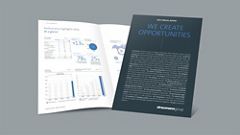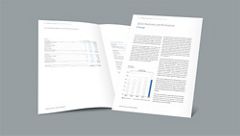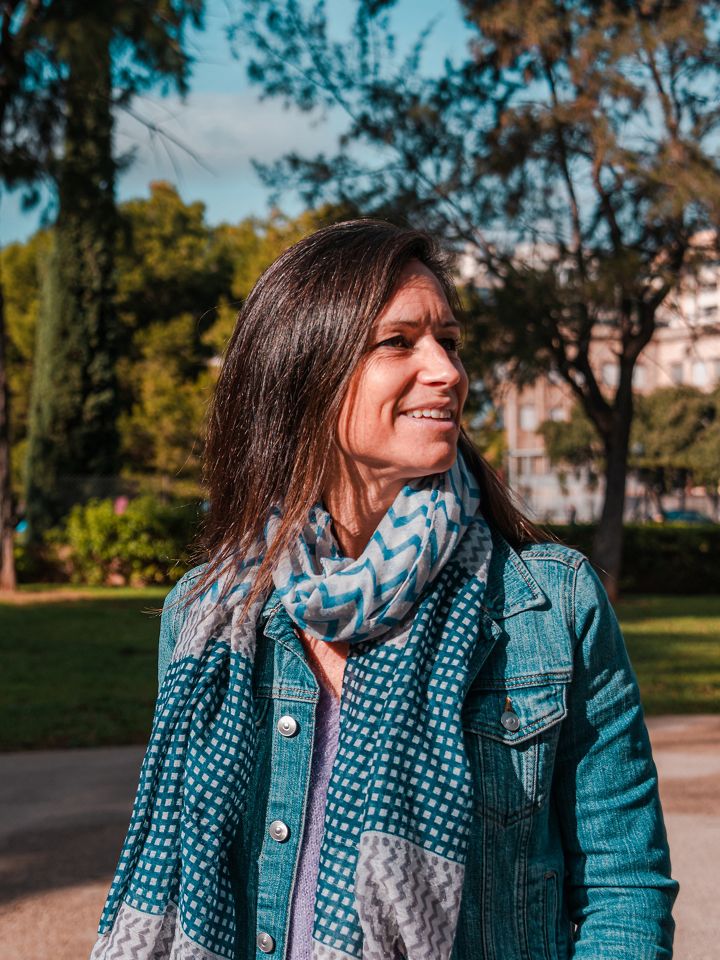
Thanks to digitalization, we can now show the patient what should be done and what the final result will look like
We embrace digital solutions
The periodontist and implantologist Laurence Adriaens stands for empowerment and is more than ready to tackle not only digitalization but also the status quo of dentistry.
Although she comes from a long line of dentists, Laurence Adriaens originally had other career aspirations. “I studied Greek and Latin at school and thought I would do something with languages – or history,” she recalls. But when she was 18 and helped out in her father’s practice during the summer holidays, she came into close contact with the world of dentists for the first time. And soon she was fascinated by her father’s work. “I liked that it was about helping people. And besides, in this profession you can work with your hands.”

If you want a healthy smile, you have to take care of the underlying tissue
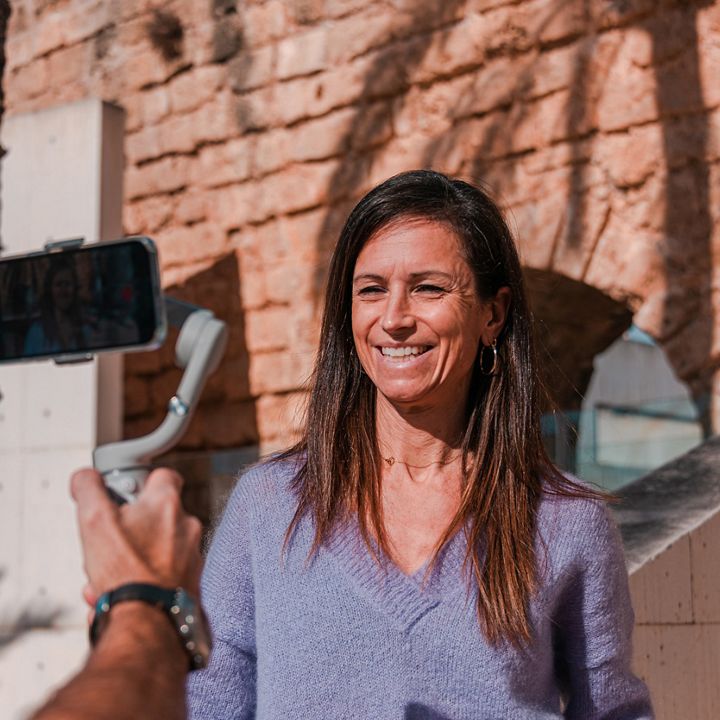
On most days, Laurence and Fernando are not home until 8 pm, which means it is almost bedtime for the children. “Accordingly, we want to use the little time we have with them as wisely as possible,” Laurence emphasises. “On the weekends, we try to relax and want to be with our children.” But the fact is that the couple works hard and their job is very demanding. “There are always moments in our children’s lives when one of us is missing,” Fernando admits. “We often have to make one compromise or another.”
When Laurence started her career in this field, there were still very few female dentists. “It wasn’t until I specialized in periodontics and implant dentistry, had my own practice and was invited to give lectures that I realized there weren’t really that many female dentists in this field. Or at least they are far less visible,” she explains. Despite the fact that more women than men study dentistry these days, women are still underrepresented in the field of implantology. Laurence attributes this not least to the lack of role models. “We actually discussed this topic at a recent meeting of the ‘Women in Implantology Network’ (WIN), founded by Straumann in 2016. I think it is important that female students who want to go into surgery see that there are other women who have already made a name for themselves in the field.”

After all a smile is basically a person’s business card
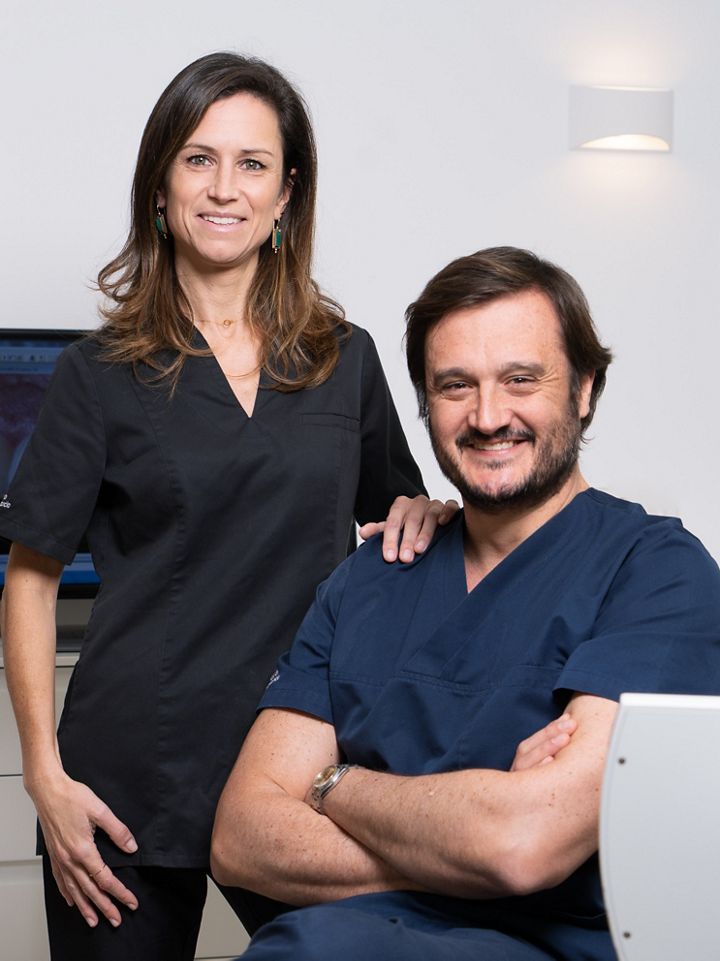
About Laurence
ITI Fellow since 2008 and ITI Study Club Director since 2009 in Palma de Mallorca. Publications in national and international dental journals
Founding member of WIN (Women Implantology Network) since 2016
Owner of a private practice in Palma de Mallorca and working as a specialist in Periodontology and Implantology
Passionate about art, pilates and traveling
Graduated from University of Bern, with a Master Degree of Advanced Studies in Periodontology
Specialist in Periodontology recognized by the European Federation of Periodontology (EFP)
As in so many other areas of life, digitalization is becoming increasingly important for dental practices. “What has really changed is that, thanks to digitalization, we can now show the patient what should be done and what the final result will look like,” Laurence points out. By digitizing the patient’s mouth, the practice can now reproduce its shape – including the teeth – on a computer. “This is a breakthrough technology that allows the patient to see exactly what their new smile will look like,” Fernando enthuses. According to Laurence, developments such as the intraoral scanner have transformed dentistry in recent years. “Planning treatments using 3D radiographs combined with intraoral scanning helps us not only with restorations, but also with how implants should be placed. And from there, we can now control the surgical part much more easily,” she explains. In other words: dental surgery has now become very predictable and much more efficient.

Dental surgery has now become very predictable and much more efficient

But the road to digitalization is not always easy: “There was a dentist who worked for us and was not really willing to use the intraoral scanner. So we told him, “We’re evolving and you’re evolving with us.” We showed him how to use the intraoral scanner. And lo and behold, he was ready to change after all,” Laurence recalls. For her and Fernando, this episode makes it clear that new programs and tools need to be as easy to use as possible. “That way we do not lose too much time during the learning process,” Fernando adds. In his opinion, digitalization is still a new topic, but it is here to stay. Laurence: “At a meeting with Straumann, I was advised to start with one product, master it and only then move on to the next tool – so it’s one small step at a time.” She and Fernando agree that their digital learning curve is rather slow, but technological change is rapid. “It is a challenging process, but as world-class professionals, we have every intention of adopting digital solutions. Digital tools not only facilitate patient communication, they are also strong tools to improve treatment workflow efficiency and multidisciplinary collaboration as well as communication to achieve better treatment outcomes”, they say in unison.
Part of that process even includes expanding the Instagram account of their practice, being more active and visible. “This allows people to follow us and see what can be achieved with periodontics and implantology,” Laurence is convinced. “In addition, social media is of course also an excellent tool to show that Fernando and I are still very much committed to education and also participate in continuing education programs. After all, we want to stay up to date with the latest developments in dentistry.”








